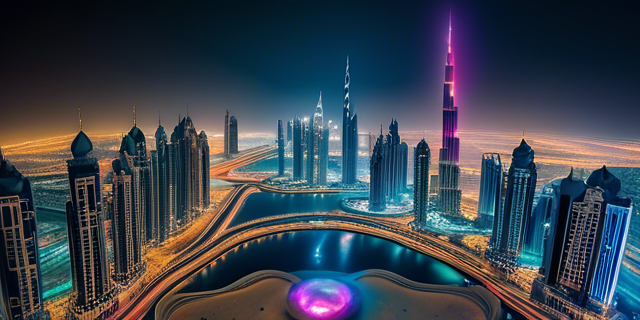Introduction
Dubai, one of the seven emirates comprising the United Arab Emirates (UAE), operates within a distinct political system characterized by a blend of traditional monarchy and modern governance structures. Understanding the political landscape of Dubai provides insights into its governance framework, leadership, and decision-making processes.
The Ruling Monarchy
Al Maktoum Family
The political system of Dubai is led by the ruling Al Maktoum family, which has governed the emirate for generations. The ruler of Dubai, currently Sheikh Mohammed bin Rashid Al Maktoum, serves as the head of state and government, wielding significant influence over policymaking and governance.
Succession
Succession within the ruling Al Maktoum family follows traditional lines, with the eldest son typically assuming leadership roles. Smooth transitions of power ensure continuity and stability within the political system of Dubai.
Governmental Institutions
Executive Branch
The executive branch of the Dubai government comprises various ministries and governmental departments responsible for overseeing different sectors, including finance, economy, education, and infrastructure. These institutions implement policies and initiatives to support the emirate’s development and prosperity.
Legislative Authority
While Dubai does not have a separate legislative body, federal laws enacted by the UAE’s Federal National Council (FNC) apply to the emirate. Additionally, Dubai’s ruler and government issue decrees and regulations to address local governance matters and enforce federal laws.
Advisory Bodies
Dubai Executive Council
The Dubai Executive Council serves as the principal advisory body to the ruler of Dubai, providing counsel on strategic planning, policy formulation, and governance matters. Comprising key government officials and experts, the council plays a crucial role in shaping Dubai’s development agenda.
Dubai Supreme Council of Energy
The Dubai Supreme Council of Energy advises on energy policy and sustainability initiatives, guiding the emirate’s efforts to diversify its energy sources, enhance efficiency, and promote renewable energy adoption.
Political Landscape
Stability and Development
Dubai’s political system is characterized by stability, visionary leadership, and a commitment to economic diversification and modernization. The emirate’s leadership prioritizes innovation, infrastructure development, and investment in key sectors to drive sustainable growth and prosperity.
International Engagement
Dubai’s political leadership actively engages in international diplomacy, forging strategic partnerships, and promoting the emirate as a global business hub, tourism destination, and center for innovation and creativity.
Conclusion
The political system of Dubai, United Arab Emirates, reflects a blend of traditional monarchy and modern governance structures, characterized by stability, visionary leadership, and a commitment to development and prosperity. The ruling Al Maktoum family, alongside governmental institutions and advisory bodies, plays a central role in shaping governance and policymaking in Dubai, ensuring continuity and progress in the emirate’s journey toward the future.

